News
Throwback to REScoop.eu's annual conference 2022 - Energy communities empowering our future
From the 20th until the 22nd of April, REScoop.eu’s annual conference gathered energy cooperatives across Europe to exchange ideas about the development of the movement and the challenges and opportunities ahead. This year’s edition focused on how energy communities empower our future. Our energy system has to drastically change in the next years and citizen energy cooperatives are the best positioned to lead the energy transition to energy democracy.
Together with participants, we explored alternative ways of organising our society, delved into some of the most trending issues energy communities are working on, and looked at how to support the development of new and current initiatives. All this took place in interactive and hands-on workshops with plenty of networking opportunities.
Day 1
Opening Session
REScoop.eu’s Annual General Meeting was officially kicked off by our President, Dirk Vansintjan. We were glad to welcome both Erinch Sahan and Leonora Grcheva from the Doughnut Economics action lab, who introduced the Doughnut Economy, with keynote speeches.
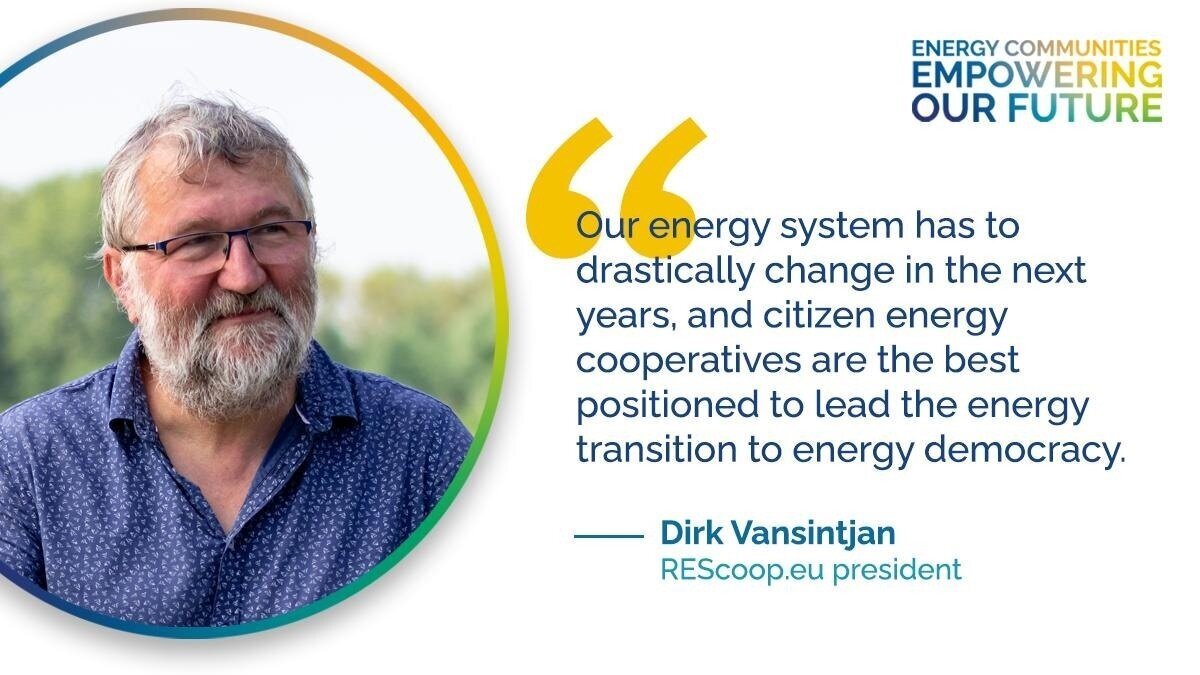
Introduction to the Doughnut Economy Theory
Following an inspirational keynote speech, we were glad to welcome back Erinch Sahan and Leonora Grcheva (Doughnut Economics action lab) in our first workshop session.
This workshop allowed us to dig a little deeper into the synergies that (can) exist between the Doughnut Economics Theory and our own REScoop.eu charter. To get our participants creativity flowing about what the future could look like when it’s envisioned through the Doughnut, REScoop.eu communications manager, Sara Tachelet, presented our very own visualisation of how we see a future society built on the foundations of the cooperative values and the doughnut. This led to some fruitful exchanges in the breakout rooms around challenges and opportunities for scaling up efforts to create a decentralised energy transition based on cooperation.
Conclusion about what’s needed? More transparency, awareness-raising, enabling frameworks for grassroots initiatives, holistic policies and more democratic governance and citizen empowerment!
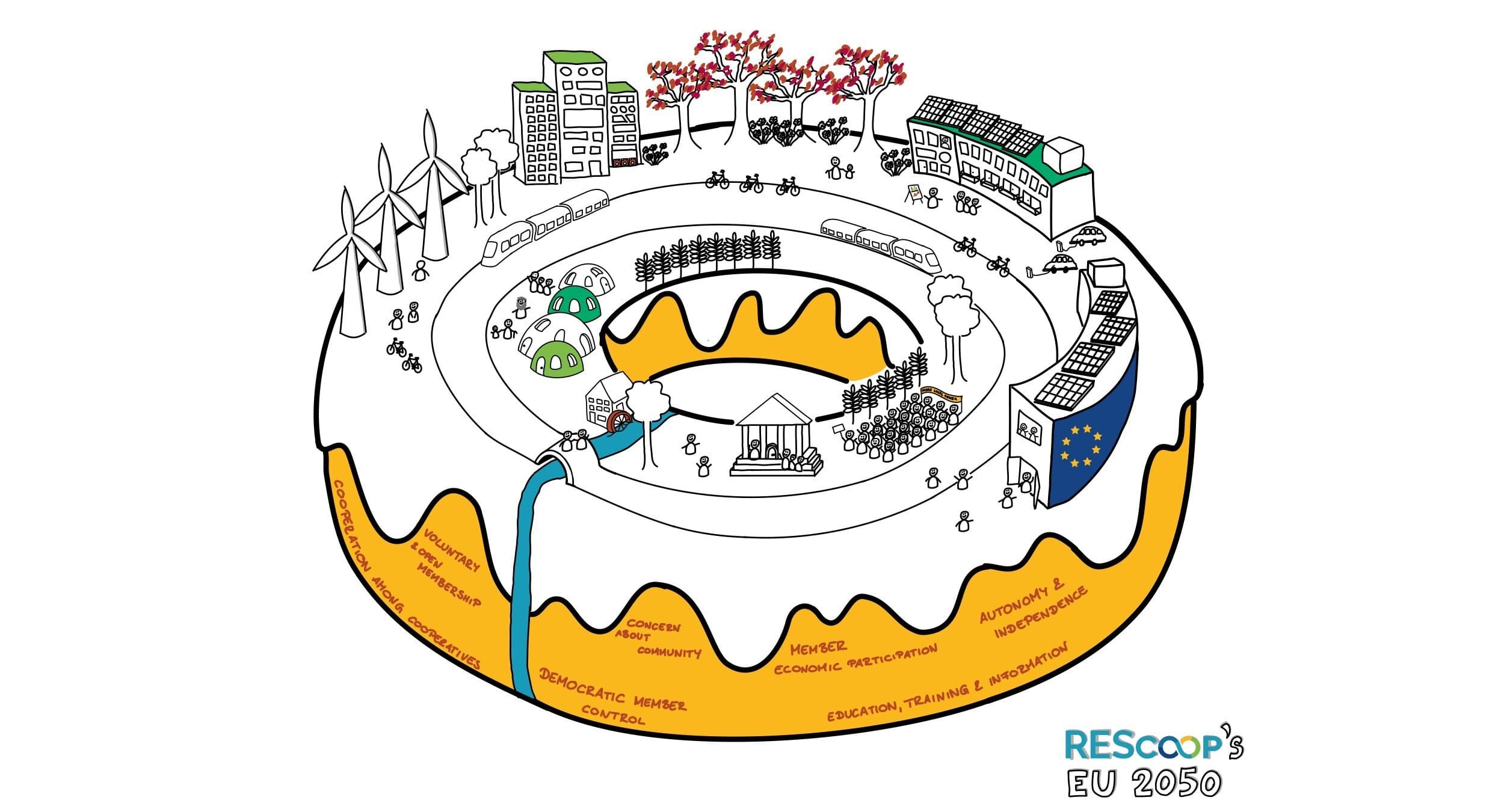
Community-owned virtual power plants – lessons from a maturing concept
The session started with an introduction of the concept by REScoop.eu project manager Roland Tual. The energy landscape is currently changing from a centralised to a decentralised model where citizens have an active role and the demand follows the generation. This has opened the door for new services for renewable energy source management.
Luc Meskens from Energent presented a practical example of how they are optimising collective auto consumption. Vincent Dierickx from EnergieID explained the energy flexibility tools that the REScoopVPP project is developing and how they will help energy communities to become self-sufficient. Laura Van den Berghe from the Eindhoven University of Technology (TU/e) closed the round of presentations reflecting on community strategies for increased market participation and the role that cooperatives of cooperatives can take.
The session finished with a round of questions in which the speakers highlighted the need to become independent from fossil fuels, foreign technology and big players’ services.
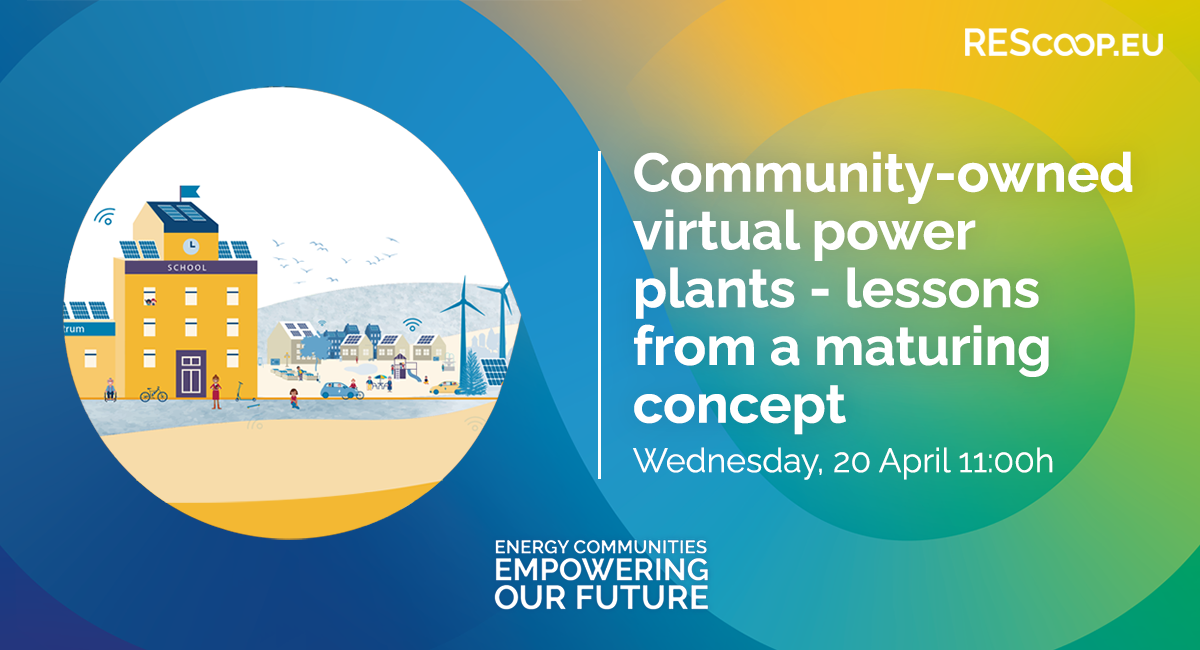
Citizen-led renovation: energy cooperatives providing building renovation services
The session organised by our citizen-led renovation working group showcased the great work the members of the group are doing in energy efficiency and building renovation.
After a short introduction to the topic by REScoop.eu project manager Sem Oxenaar, three different cooperatives took the floor. Rachad Ghaddoura from Coöperatie Hoom in the Netherlands presented how their members have trained over 5000 local residents as voluntary ‘energy coaches’ supporting their neighbours with simple energy saving measures in their homes. Then, Gearóid Fitzgibbon from Energy Communities Tipperary Cooperative CLG highlighted how they brought together over 13 communities to invest in home renovation as a means to develop the local economy. Finally, Jonathan Atkinson from People Powered Retrofit gave an insight into their unique approach to doing deep home renovations supported with open-source IT tools in Manchester. All in all, a very inspiring overview of what some of the pioneers in the cooperative renovation sector have been doing. REScoop.eu members interested in the working group can get in touch with Sem Oxenaar.
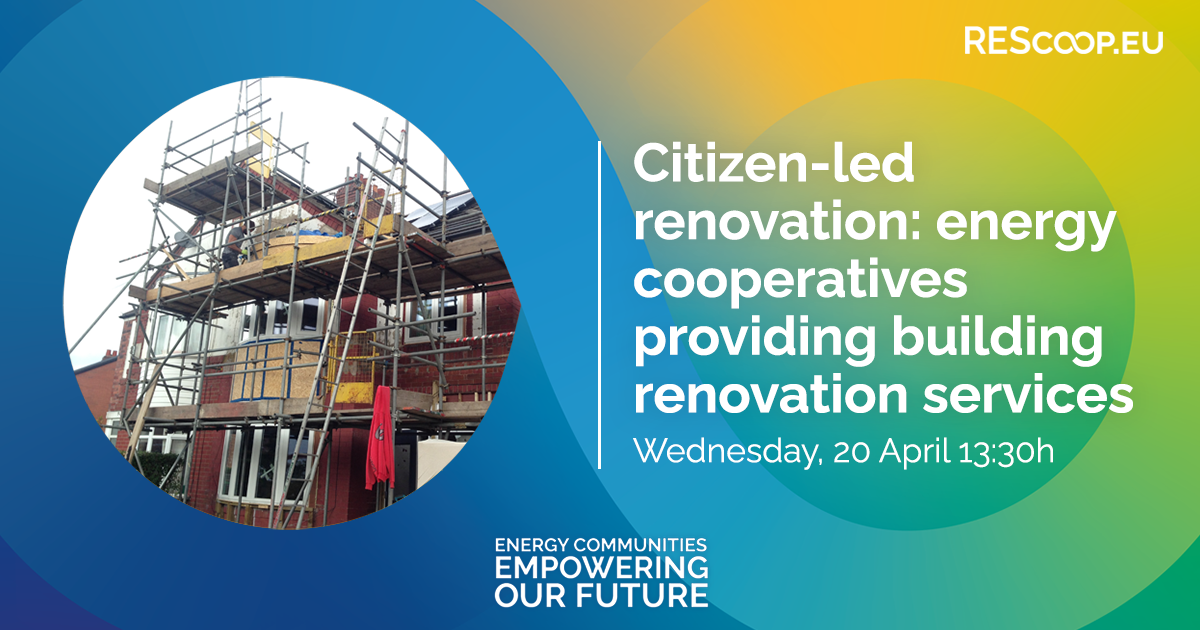
How can businesses support the community energy movement?
This session brought forward an inspiring call to action to energy communities and businesses to explore working together on renewable energy projects.
The session started with an introduction from Sara Tachelet from REScoop.eu setting the scene by reasoning why the community energy movement should be supported to grow. Community energy increases our resilience to climate change and energy crises. Afterwards, Antonio Rohrßen from Patagonia explained why businesses should jump on the community energy train. Most importantly, we invited Tom Prinzie from Van Marcke and Frédéric Haghebaert from BeauVent cv to showcase their lighthouse example of fruitful collaboration with loads of wins on both sides of the partnership.
The session closed with the launch of a business guide: "Securing our future: how business can scale up community energy for a cleaner and more secure energy future" that covers the basics of exactly how a private company can support the growth of community-energy and provides examples of those that are already doing this work.
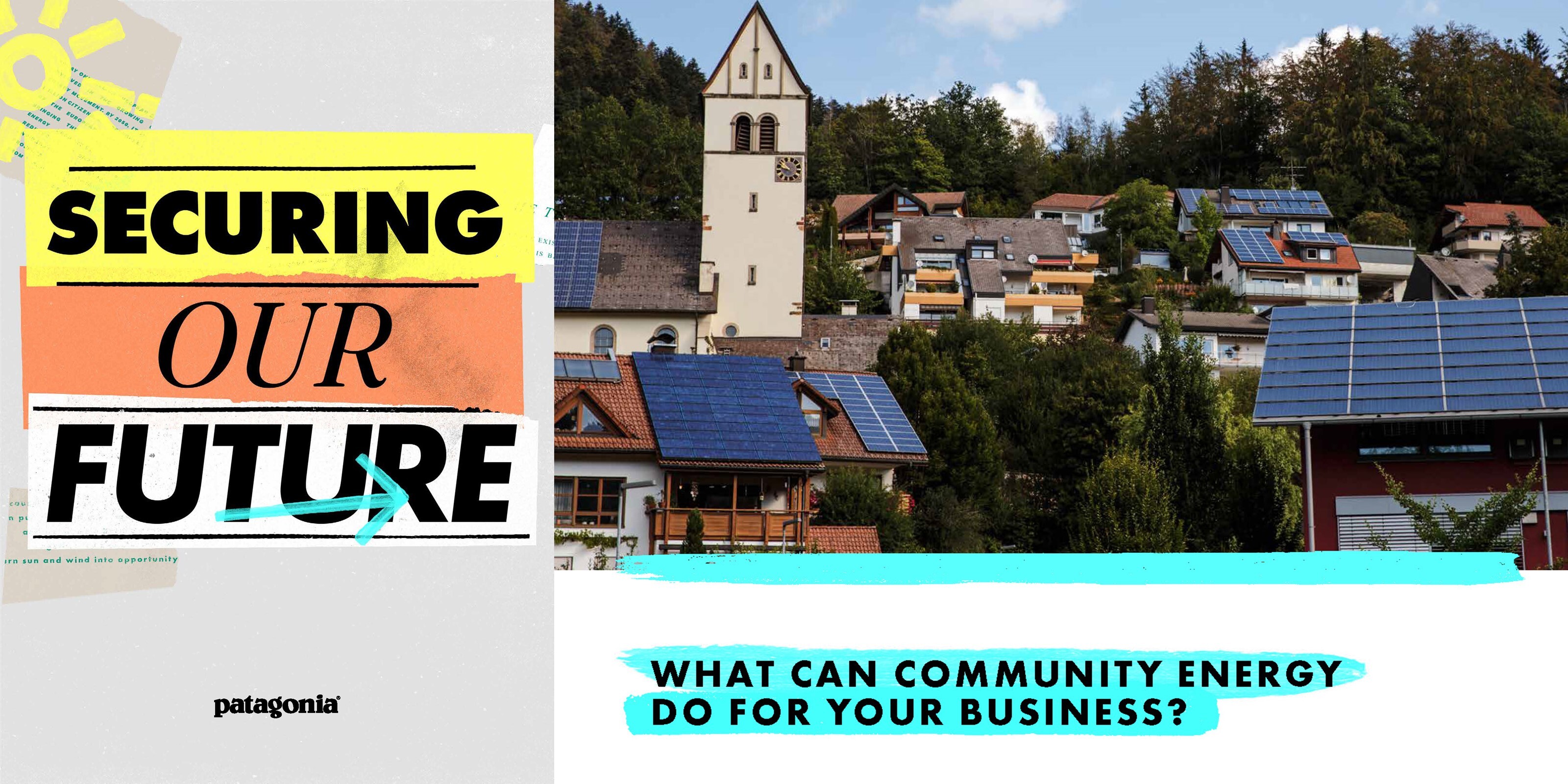
Day 2
Energy communities tackling energy poverty: financing for solidarity
After an introduction on the key principles and aims of the H2020 project CEES (‘Community Energy for Energy Solidarity’), the session zoomed in on some of the current existing practices of funding energy poverty alleviation activities amongst energy communities. Specifically, Kevin Chaplais from Énergie Solidaire guided us through some of the CEES partners’ funding schemes and explained challenges, obstacles and opportunities encountered. As the financing question remains a complex issue for many citizen-led energy initiatives, current social challenges urge us to keep on exploring innovative ways to scale up our social efforts. In smaller discussion groups participants had the opportunity to share their own insights and experiences. In these discussions, the issue of balancing profit, surplus, subsidies and acquiring the right skills to manage complex financing models, while at the same time addressing social justice issues, was once again highlighted.
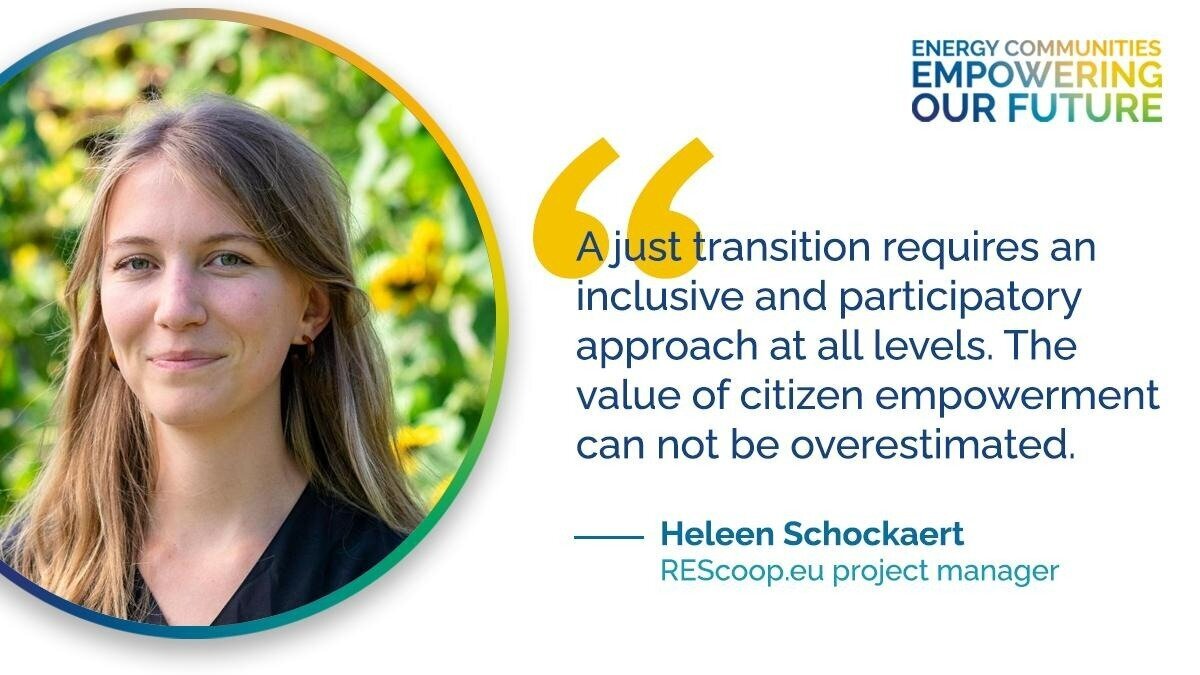
Smart home solutions - Can cooperatives make it happen?
Vincent Dierickx from EnergieID set the scene by introducing the REScoopVPP project and its ambition to create smart home tools by cooperatives for cooperatives.
Moreover, different cooperatives, such as Energent, Enercoop, Som Energia, Carbon Co-op and Beürgerwerke, presented the development status of their smart home tools enabling (collective) self-consumption and demand response. Lastly, REScoop.eu project manager Roland Tual presented the common vision on the possible services of a European IT service provider.
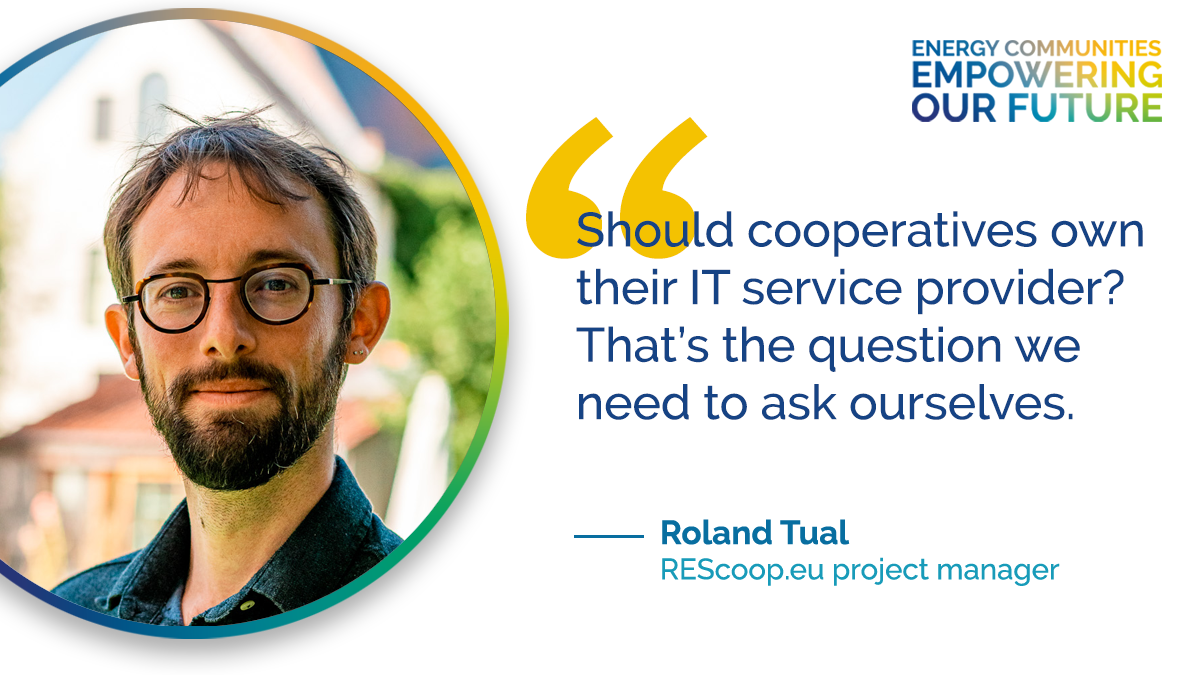
Taking action for advancing gender justice in energy communities
Organised by the REScoop.eu Gender Power Working group, this session presented its Ambition statement and action plan with regard to gender equality. A panel discussion with Sara Gollessi from Ènostra (Italy), Margot Vingerhoedt from Ecopower (Belgium) and Maya Andreou from Attica Energy Community (Greece), gave various insights into how cooperatives are dealing with this topic in their community. Finally, participants were asked to share feedback regarding the measures, and especially training that should be prioritised to advance gender justice in energy communities.
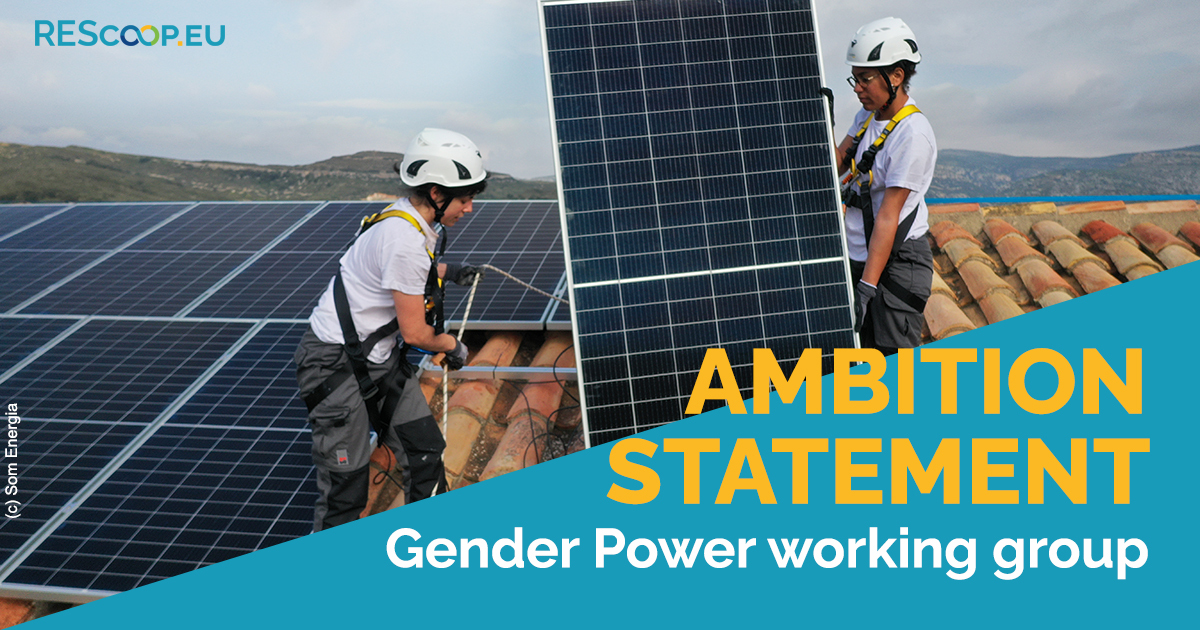
Support schemes for energy communities
The session started with a presentation by REScoop.eu senior policy advisor, Josh Roberts, who set the scene and shared some information on the new state aid guidelines (CEEAG) and the RED II requirements for the support schemes for energy communities. In an interactive exercise, participants noted down their questions with regards to the CEEAG and shared their objectives and key tasks at the national level with regards to support schemes with specific provisions for energy communities. Josh Roberts briefly touched upon the opportunities the CEEAG provide, but also highlighted the complexity of some issues that need to be clarified, preferably with explanatory guidelines coming from the Commission.
Afterwards, we heard from Eugénie Bardin (Enercoop), Dimitris Kitsikopoulos (Electra Energy Cooperative) and René Groß (DGRV), coming from France, Greece and Germany, to share their experiences with regard to support for community energy.
The workshop concluded that, on paper, the new CEEAG provide a number of opportunities at the national level for supporting renewable energy communities. However, a lot of the legal details need to be ironed out and clarified. Otherwise, the complexity and administrative burden of navigating the CEEAG may keep limiting their value to supporting renewable energy communities.
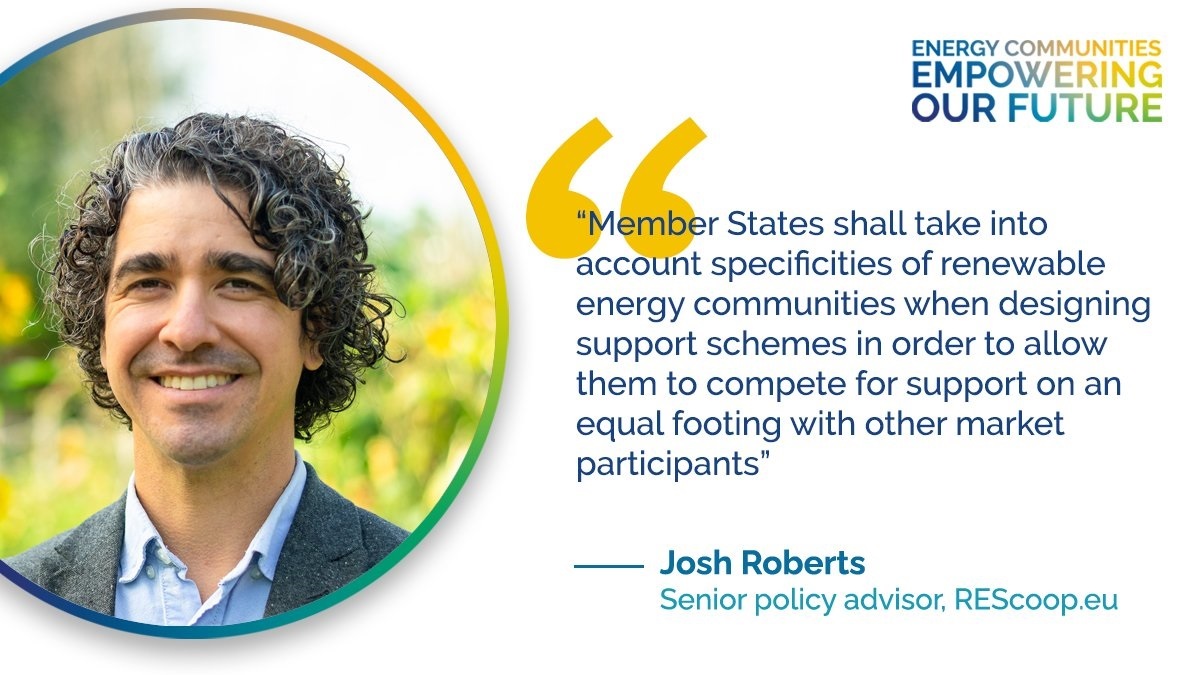
Day 3
Understanding and assessing community development
The session started highlighting the components and challenges linked to understanding community development, from the wide variety of community energy initiatives to the criteria linked to understanding community building.
The INTERREG ECCO project presented its One Stop Shop. The team of JOANNEUM RESEARCH introduced the maturity scale and its governance based approach to assessing community maturity. Dr. Thomas Hoppe from the Technical University of Delft presented the literature research of the monitoring tool, adding a social innovation approach to understanding the scaling of energy communities. In a panel discussion with Marion Richard (Énergie Partagée), Siward Zomer (Energie Samen) and Mislav Kirac (Zelena energetska zadruga), the impact of environmental factors on the development of energy communities was discussed, and specifically the interaction between cultural and regulatory factors. Moreover, the issue of corporate capture was brought up, highlighting the differences between “real” and “fake” energy communities.
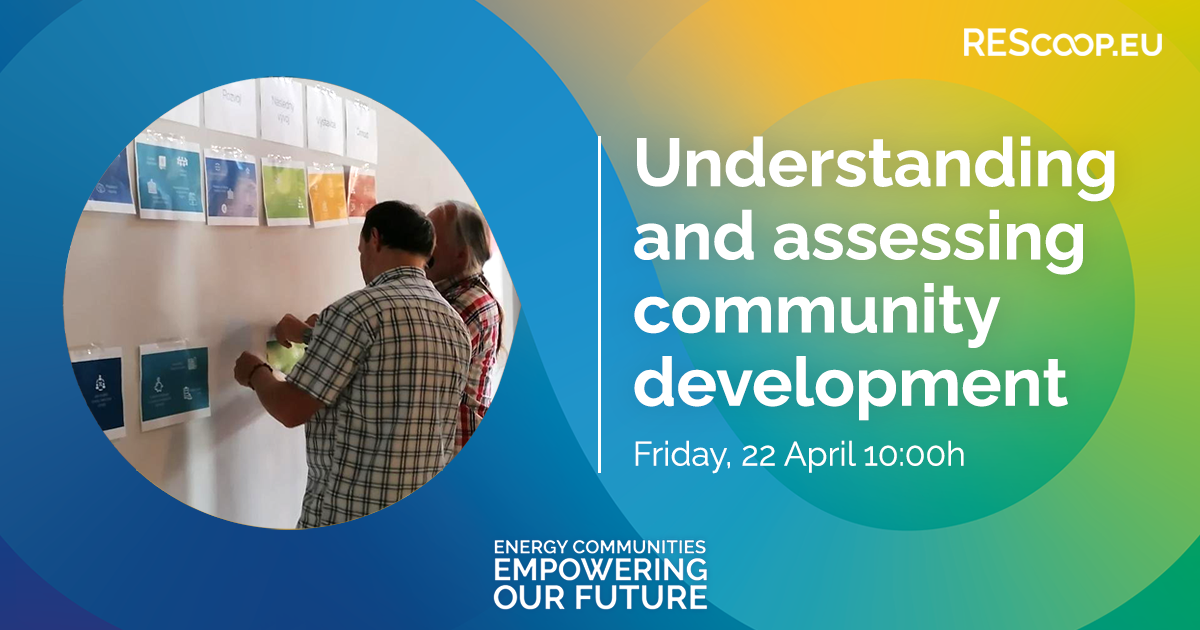
The panelist highlighted the importance of going into the details of governance, and to adapt the concept of ownership based on the capabilities of the local movement.
Building member engagement in your energy community
Engagement with members is absolutely necessary for creating and retaining an energy community and a key element that distinguishes energy cooperatives from traditional top-down energy companies. Knowing and understanding our members and the community around us is the first step to develop a successful engagement strategy.
After some theoretical insights shared by REScoop.eu communications manager, Sara Tachelet, about the levels of engagement and tips to keep our members engaged, we heard an inspiring example presented by Jeroen Baets from Energent, a Belgian energy cooperative where volunteers – highly engaged members - play a key role. After that, participants collectively designed a member engagement activity.
The workshop finished with great news: the publication of a community energy communications guide! This handbook, created by REScoop.eu and Energy Cities, contains tips, tricks and best practices to promote the community energy movement in Europe.
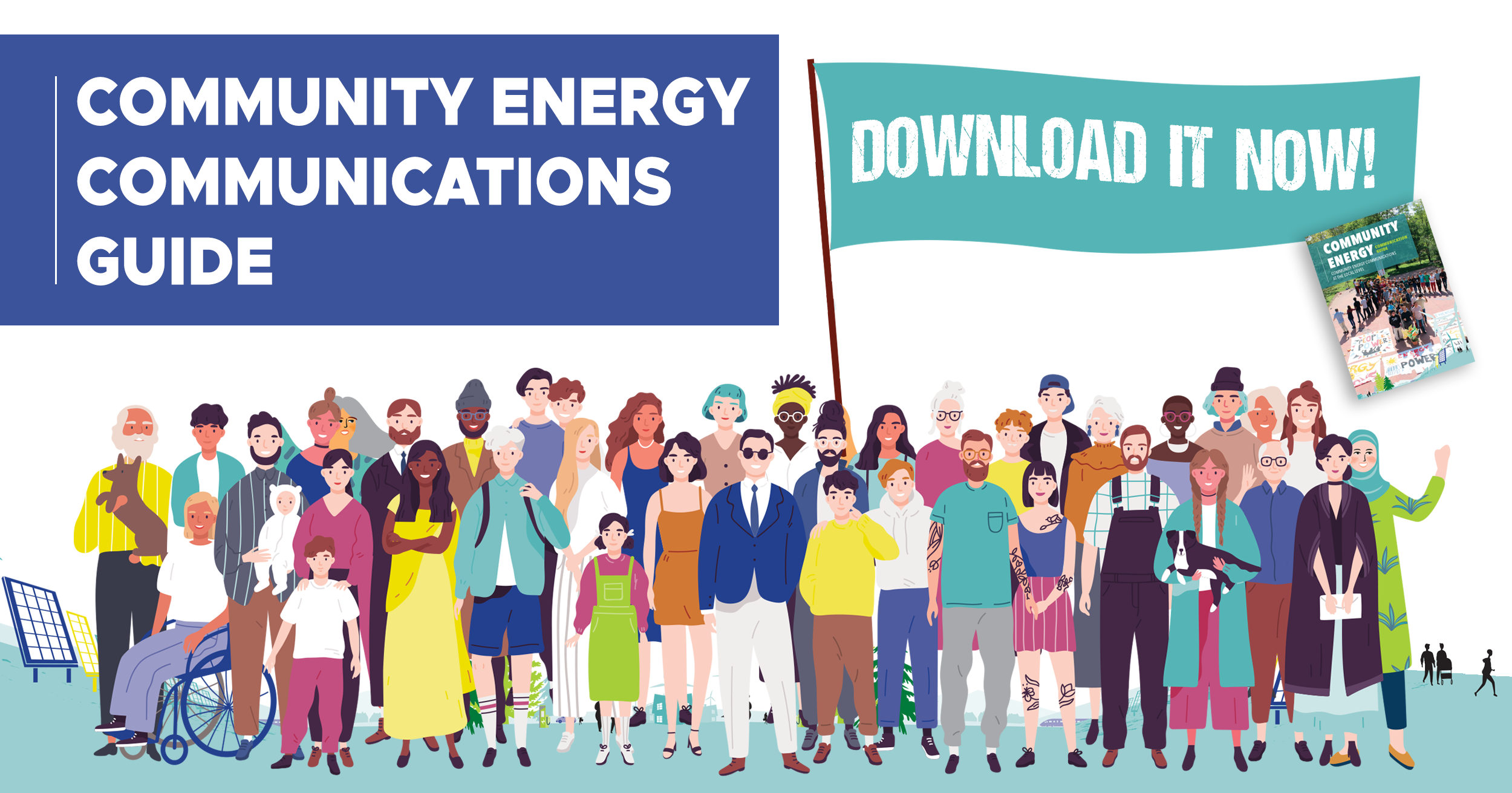
How can rural communities help their municipalities achieve their energy & climate objectives?
In this session, hosted by the Interreg NWE ECCO project, we heard from LochemEnergie in the Netherlands about their journey from a small cooperative to an energy community with links across the region and various activities (including car sharing), and the next steps in working with their municipality to upscale their work. Énergies citoyennes en Pays de Vilaine in France showed the variety in set-ups and collaborations between different entities possible around rural energy communities. Then, Ulrich Pfeiffer from Oberrosphe in Germany explained how their municipality helped finance the feasibility study for the heat network in their village.
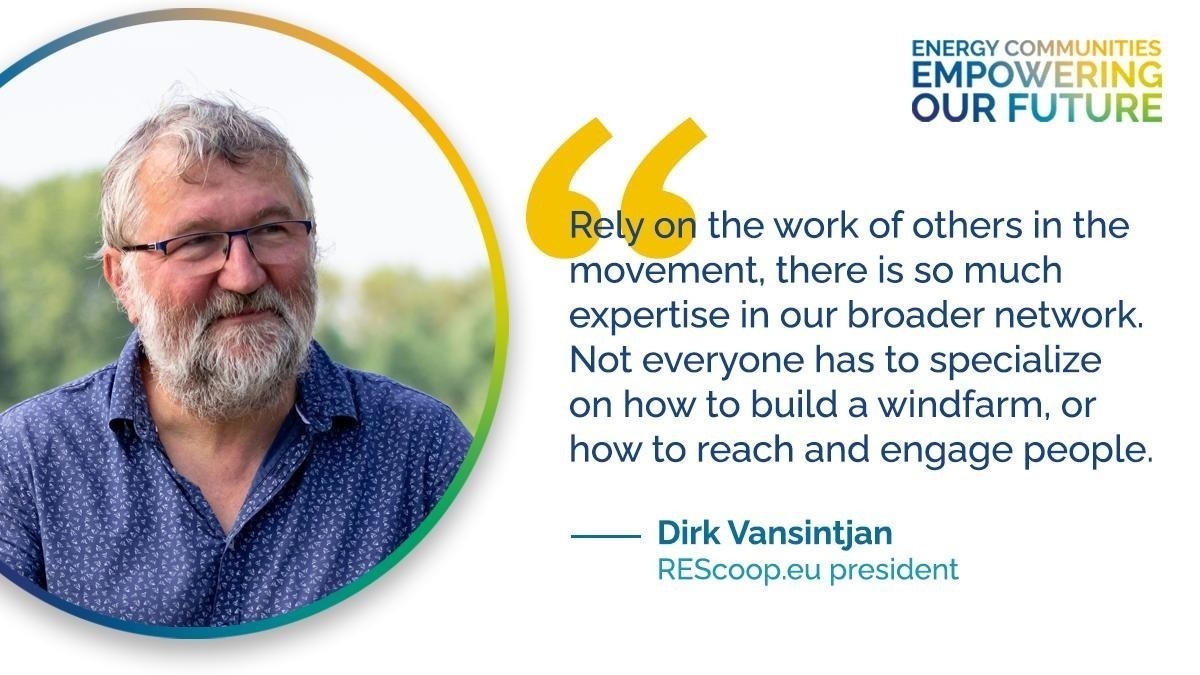
The Rural Energy Communities Advisory Hub, a new initiative of the European Commission shoulder to shoulder with the Energy Communities Repository, further showed how the EU aims to support rural energy communities in the coming years. During the discussions, a spontaneous exchange emerged between a city council representative and the cooperatives in the meeting to discuss a district heating project in this particular city - a living example of how energy communities and municipalities can work together!
The energy transition in the Balkans
During this session, the most recent developments in the legal framework for community energy in the Balkan region was discussed as well as the activities on the ground. REScoop.eu project manager Stavroula Pappa shared insights into the transposition process of the EU provisions for energy communities into the national legislation of several Balkan countries. Following, Valbona Mazreku (Milieukontakt Albania) shared some insights on the progress of the new initiatives in Albania, and Ana Dzokic (Elektropionir) informed us about the most recent developments in Serbia where the interest is growing.
Next, Krisztina Andre (Bündnis Bürgerenergie (BBEn) e.V) invited us to check out the citizen energy MOOC developed by EUCENA, and invited us all to apply to join the Summer school in Thessaloniki oganised by the EUCENA and COMPILE projects.
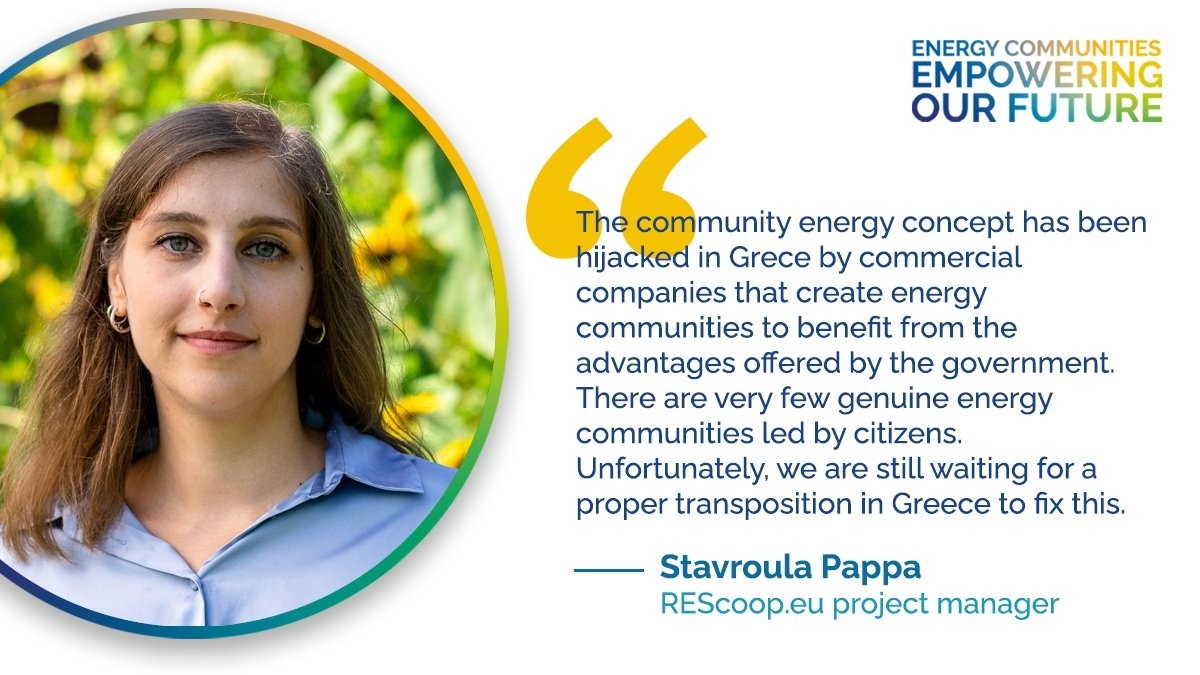
10 years of growing the movement: a trip down memory lane
On the last day of the AGM, we celebrated the 10th anniversary of the REScoop202020 project. In those 10 years of growing the community energy movement, we have accumulated a bunch of unforgettable memories that we shared with the participants!
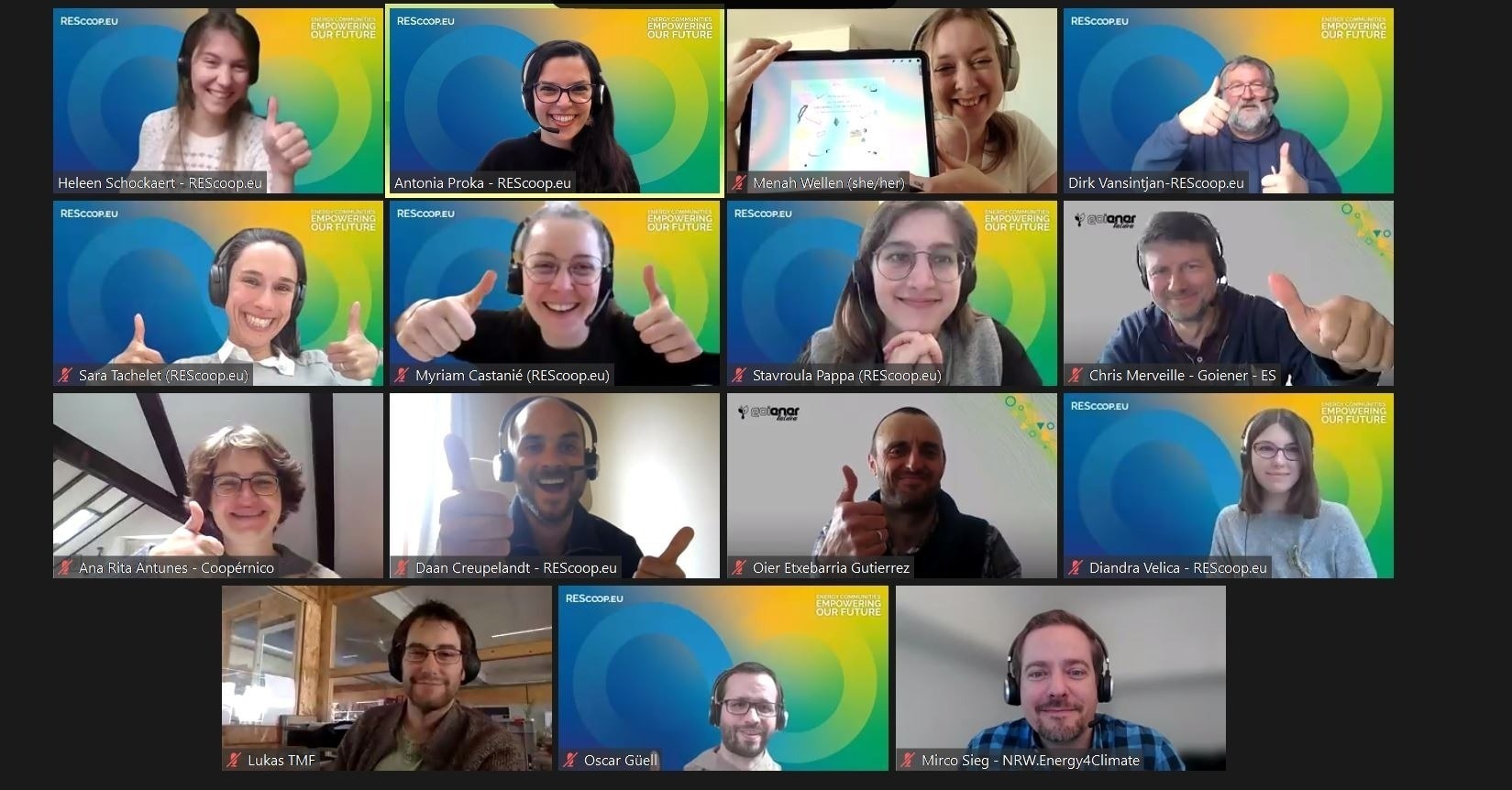
We want to thank all the speakers and participants that joined us in the many fruitful conversations, discussions, and workshops. For us, this conference was also the celebration of our 10th anniversary . We are motivated to continue growing the movement, spreading the cooperative message, and making the energy system future-proof.
We hope to see you next year - in person!